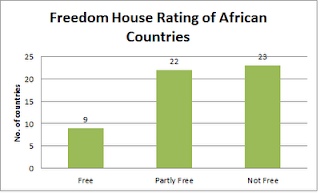The Olympic flame is extinguished, the Olympic flag has been
handed to Rio de Janeiro and the athletes will soon leave London. Yet the games
of the XXX Olympiad have exceeded all expectations, before the games there were
worries over how London’s transport system would cope with the influx of
tourists and athletes, there was also fear about whether or not Britain would
get behind the games. With the games finally over, we all recognise the triumph
they have been, everything went off seamlessly.
One thing that I’m really impressed with is the way in which
the British public got behind the games, there was so much joy and passion in
the media. Speaking with friends and family and from watching the television,
most of us seemed glued to our TV screens for the sixteen days of competition. One
of the reasons why the British public were so enthusiastic once the games began
may partially be due to Team GB’s success. Great Britain has had the best
Olympic Games since 1908; we are third in the medal table with an impressive 29
gold medals.
|
Rank
|
Country
|
Gold
|
Silver
|
Bronze
|
Total
|
|
1
|
USA
|
46
|
29
|
29
|
104
|
|
2
|
China
|
38
|
27
|
22
|
87
|
|
3
|
Great Britain
|
29
|
17
|
19
|
65
|
|
4
|
Russia
|
24
|
25
|
23
|
82
|
|
5
|
South Korea
|
13
|
8
|
7
|
28
|
|
6
|
Germany
|
11
|
19
|
14
|
44
|
|
7
|
France
|
11
|
11
|
12
|
34
|
|
8
|
Italy
|
8
|
9
|
11
|
28
|
|
9
|
Hungary
|
8
|
4
|
5
|
17
|
|
10
|
Australia
|
7
|
16
|
12
|
35
|
There have been some really memorable moments at London
2012, for most Brits the best will probably be “Super Saturday” when Team GB
clinched an impressive six gold medals. The rowers at Eton Dorney and the
cyclists in the velodrome gave Britain three gold medals in the morning.
Beneath the watchful eyes of 80,000 spectators in the Olympic Stadium; long
jumper Greg Rutherford, heptathlete Jessica Ennis and 10,000m runner Mo Farah
all won gold medals to cap Britain’s most successful day since 1908. Many
commentators are already calling it the greatest day in the history of British
sport.
The games have also helped further the idea that the United
Kingdom really is multi-cultural, and that it’s a good thing to. Mo Farah moved
to Britain when he was only eight from Somalia and Jessica Ennis is of mixed
race decent. Numerous other black and Asian athletes competed for Great
Britain; the feeling of patriotism instilled by non-white athletes will surely
better us as a society.
These games also made history, the 2012 Olympic Games are
the first ones in which women were able to participate in an equal number of
sports and every National Olympic Committee sent female athletes. London has
been dubbed the “women’s games”.
The Olympics have had many other memorable moments, Usain
Bolt is undoubtedly the international star of the Olympics having achieved gold
in the 100m, 200m and the 4x100m relay for the second Olympics running. Kirani
James gave his country, Grenada, a reason to celebrate by winning the country’s
first ever medal, and it was a gold! Michael Phelps also secured his place in
history by becoming the most decorated Olympian of all time with an astonishing
22 medals, 18 of which are gold. David Rudisha’s record breaking performance in
the 800m for Kenya wowed us all and Steven Kiprotich won Uganda’s first gold
medal since 1972 in the men’s marathon.
I believe a special mention should be given to the BBC,
recently the corporation has been receiving a lot of criticism, especially
surrounding coverage of the Diamond Jubilee. Yet the BBC has proved that it’s
worth the license fee, the coverage of the Olympics has been fantastic. At one
point Clare Balding was trending on Twitter, many of the messages were calling
her a national treasure and claiming that she should get an award for her
contribution to sport.
It’s not just Brits who have enjoyed the games; a group of
foreign journalists have voted London 2012, the best Olympic Games ever. Athletes
have also praised the British people for the hospitality they received during
the games. Speaking in interview the Bolt and Blake personally thanked the
people of Birmingham for their kindness and helpfulness (the pre-games Jamaican
training camp was in Birmingham)
Although I am naturally very biased, I do believe these
games have been the best is ever seen. Rio will find it difficult to follow,
but I’m sure 2016 will be another phenomenal Olympic instalment.
 |
| Mo Farah and Usain Bolt exchange dance moves |











